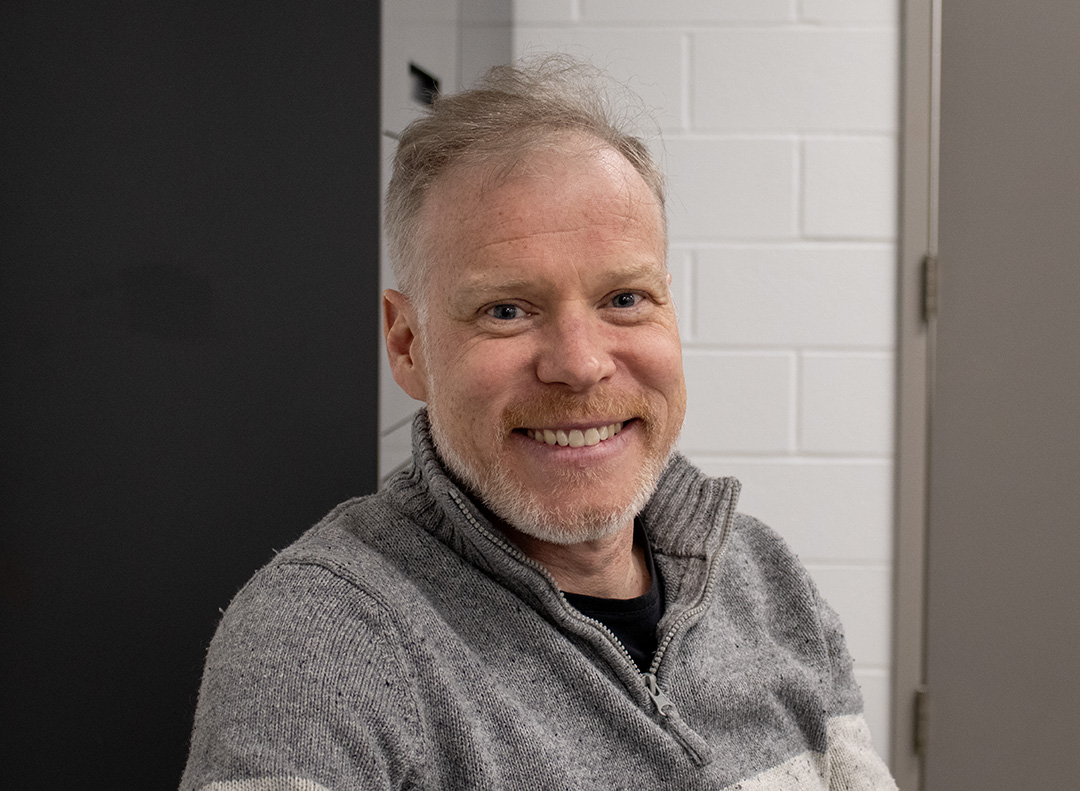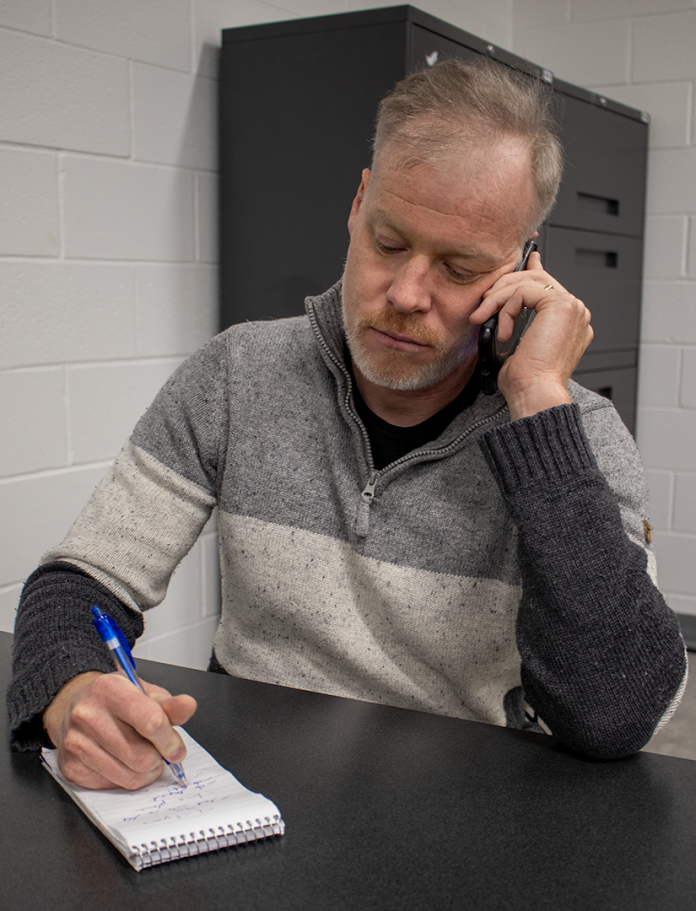After years of virtual learning, classes were back in person at Durham College in the fall of 2023. On a Wednesday night, Kenyon Wallace captured the attention of journalism students in his Media, Law and Ethics class with a story from the frontlines of the COVID-19 pandemic.
Wallace described shadowing doctors and nurses in a Toronto emergency room, and recalled the chaos of 2020 and 2021. “During Covid, especially, we saw emergency rooms in Ontario hospitals very overcrowded,” he said. Determined to understand the pressures healthcare workers faced, Wallace asked, “If I could spend a night in one of their emergency rooms… follow the doctors and nurses around and see what it was like.”
From patients with “the sniffles” to heart attacks, Wallace saw it all. His storytelling in “We spent 12 hours on an ER night” paints a vivid picture of the pressure, dedication, and exhaustion healthcare workers endured.
While Wallace is a part-time professor at Durham College, his career at The Toronto Star is defined by uncovering hidden truths that hold institutions accountable. For him, journalism is about driving change. “Whether it’s big or small, you hope your work makes the world a little better.”
In his classroom, Wallace emphasizes the importance of impact-driven storytelling, preparing students for the challenges of journalism with lessons drawn from real-world experiences.
Wallace’s commitment to journalism translates seamlessly into the newsroom, where he has earned a reputation for his dedication and teamwork.
Megan Ogilvie, a colleague who worked closely with him during the pandemic on stories like “It’s not over yet: Why the pandemic rages on for so many” and “How deadly has COVID been in 2023?” describes Wallace as both relentless and reliable.
“Kenyon is a dogged reporter. He puts 100 per cent into every story,” Ogilvie says. “He’s one of those reporters you can count on for any story that comes his way.”
Wallace is particularly proud of his investigation into Ontario’s training schools, “Justice is long overdue’ for training school survivors” which exposed the abuse children endured in these institutions. “These children were sexually, physically, and emotionally abused… It made them worse because they all came out with post-traumatic stress disorder,” Wallace said.
His reporting uncovered how the Ontario government had quietly settled lawsuits with victims, often silencing them with payouts. Wallace’s work gave these survivors a voice, leading to a class-action lawsuit against the government.
Jason Miller, another colleague of Wallace and a graduate from Durham College’s journalism program, credits Wallace with exposing aspects of the community that otherwise might have remained hidden.
“He’s made his name by doing some of the most well-known stories,” Miller said. “He’s had his hands in some pretty major investigations that have impacted our community. Many things about our community wouldn’t have come to light if it weren’t for his work.”
Despite several awards, including a Michener Award for coverage of Toronto Mayor Rob Ford and a National Newspaper Award for Long Features, Wallace remains modest. Laughing, he explained, “Awards are a funny thing… They have to pick somebody sometimes… It’s not really a true reflection of your abilities.”
For him, the recognition, while appreciated, doesn’t change the way he approaches his work. “It’s nice getting them because they boost your career, but it doesn’t mean you’re any better than anybody else,” he said. Regardless of awards, his focus remains the same.

“I do what I’ve always done, regardless of whether I get any awards or not.”
Miller expressed his desire to work with Wallace, recognizing Wallace’s integrity and professionalism. “He is one of the most trusted and credible people in the profession today,” Miller added.
The pandemic presented new challenges, particularly with restricted movement and access to sources. But Wallace, who has been teaching Media, Law & Ethics for seven years, stayed grounded in his principles. “I just reported what experts were saying, what the facts stated, which is our job,” he explained.
Wallace knew he wanted to be part of the coverage during COVID and pivoted his focus to healthcare, especially the crisis unfolding in long-term care homes. For three years, Wallace immersed himself in pandemic reporting, effectively becoming a health reporter.
“You’re always learning about a new topic… You’re always having to become like a mini-expert in the topic you are writing about… and I just like that.”
He also reflected on the erosion of public trust in the media during this time: “If people don’t believe it, I’m sorry, but reality doesn’t change to meet people’s beliefs.”
Even the tough moments, like wrestling with a story late into the night, are worth it. “Sometimes it’s really tough where you’re in agony… But when you get it done, there’s a feeling of accomplishment,” said Wallace.
Wallace recently shifted to the business team, where he is exploring the intersection between public and private healthcare in Ontario. For Wallace, this beat offers a new challenge.
Kenyon Wallace’s career exemplifies the best of investigative journalism relentless curiosity, humility, and a commitment to truth. Whether exposing systemic failures or documenting the struggles of healthcare workers, he believes in the power of journalism to drive change.
“We do what we do to try to make the world better,” he said simply.
Ogilvie said Wallace has the attributes that make a good journalist: “Determination to find an answer to a question, even if it requires thinking outside the box.”
Miller admired Wallace’s longevity in the field, saying, “He found his way, stayed in the industry, and earned a full-time spot at The Toronto Star.”
Kenyon Wallace’s work is a reminder that journalism isn’t just about informing the public: it’s about holding institutions accountable and making an impact, one story at a time.
“If you’re going to be doing something for 40 years, my attitude is you better darn well enjoy it,” Wallace said with a smile.




